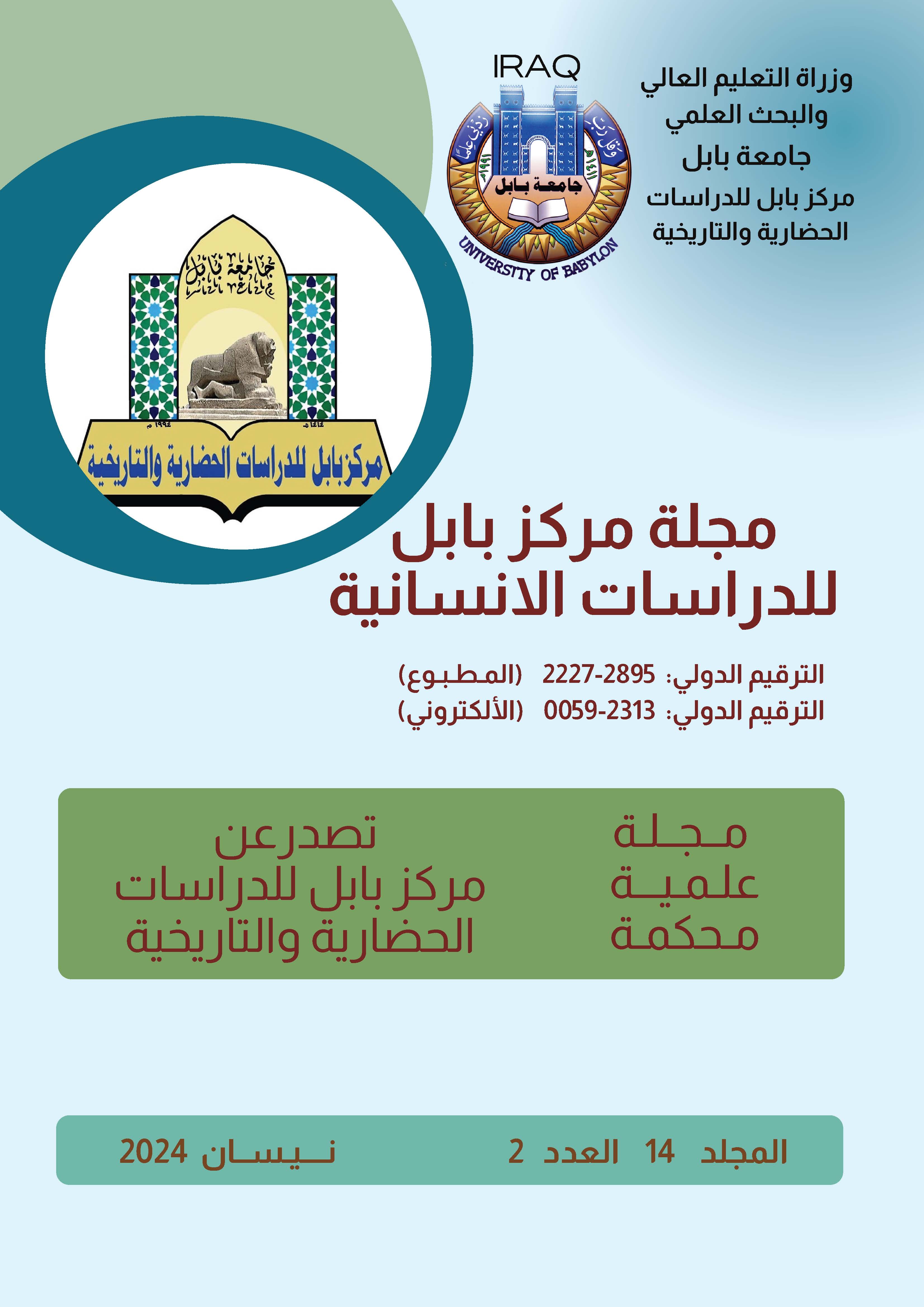The Qur’anic rooting of the Book of Repentance in the Al- Mahajja Al- Bezaa
Keywords:
Quranic origins, the book of repentance, Al-Mahajja Al-Baezaa, straight path, Judgment DayAbstract
Repentance is a door that God Almighty has opened, through His mercy, to His servants so that they may return from the state of heedlessness, committing sins, and slipping off the straight path. They may enter it and be purified through repentance from sins and their burden, then they may resume their work again. This can only be as a matter of God Almighty’s mercy, forgiveness, and comprehensive pardon for His faithful servants, because they are not infallible. It is natural. Mistakes may occur on their part as a result of the whisperings of devils and psychological desires. Then, out of the importance of repentance, many religious and moral scholars were interested in explaining it, so they devoted books to it or opened chapters on it in their works and books. Among those scholars was Al-Fayd Al-Kashani in his book Al-Muhajjat Al-Bayda, which he wrote on the basis of Al-Ghazali’s book Ihya’ Ulum Al-Din, where he devoted nearly a hundred books to repentance. A page in which he talked about all aspects of repentance, and this is what we want to study by referring to the Qur’anic rooting in repentance using an analytical and descriptive approach. It is clear from the research that one of the clear Qur’anic principles of the Book of Repentance is an explanation of the reality of repentance, its limits and loopholes, how to achieve it, then its obligation, necessity and virtue, and after that an explanation of repentance in relation to minor and major sins. As for the undeclared principles, it appears that one of the undeclared Qur’anic principles of the Book of Repentance is a statement of the conditions of repentance and the divisions of the servants in relation to the continuity of repentance, and finally a statement of the treatment for repeated repentance and failure to adhere to it. According to Fayd al-Kashani, repentance is knowledge, remorse, and intention related to abandonment. That is, a good deed that does not lead to a return to sin or committing a bad deed, and it has great merit, as the Qur’an and Sunnah recommend it, and it is fulfilled with regard to minor and major sins, but each has its own conditions. Then repentance is achieved under certain conditions, through determination, remorse, and persistence in abandoning the act, then by returning every right that the servant has lost to its owner. Likewise, with regard to repentance, the servants are divided into four classes. As for the cure for persisting in sins and the way to make a person successful by committing to his repentance and staying away from transgressions and sins, it is faith in God and the Day of Judgment and then in the Prophet, may God’s prayers and peace be upon him and his family. Then it is necessary for the person to be armed with knowledge and patience







